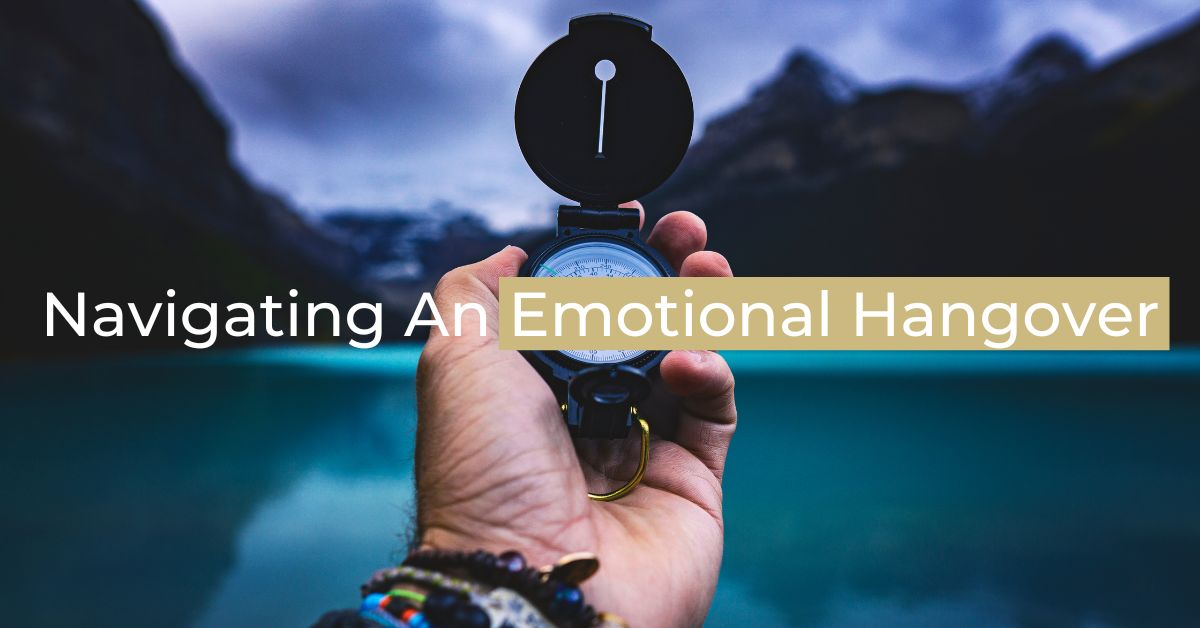When I was in college, a classmate published a piece in our student newspaper about his 10 best tips to manage a hangover. There was some back-and-forth in the letters to the editor over the next few weeks arguing about how it would be better to just do whatever you needed to do to prevent a hangover in the first place, but while that’s perhaps a fair point, the fact remains that even with all best intentions, it’s a common enough experience that it is objectively a good idea to know some strategies for managing it.
Similarly, a common experience (especially among trauma survivors) that is talked about much less–but just as deserving of its own list–is the emotional hangover. Despite all best intentions and emotional management, the day after an intense emotional experience or some intense triggers or flashbacks can be rough, and some of that emotional residue may carry over–like a hangover. Many clients I’ve worked with have also experienced this in the aftermath of an intense EMDR or other trauma-processing therapy session. And sometimes we’re so in the weeds with it that we forget how important it is to take care of ourselves when this comes up, especially when it comes to the basics.
So, with all due disclaimers that different things work at different times for different people (and as with anything, it’s about finding what works best for YOU), here are some of my most tried and true tips for navigating an emotional hangover:
- Hydrate. It’s “basic” for a reason – it’s essential! Especially if you did a lot crying the day prior, you want to avoid the crygraine if you can.
- Nourishment. Another that sounds so obvious, but when we are extra triggered we aren’t always connected to our basic needs, including hunger cues, so you may not have eaten adequately. Proteins and fats are particularly helpful for their “sticking” power, but food is food.
- Regarding crying, a cold compress on your eyes can help with cry-swelling. If you are a contacts-wearer, today may be a glasses day to give your eyes a break. Cool water on your face and neck can also help with emotional regulation, as it activates your parasympathetic nervous system, so that cold compress can actually pull double-duty.
- Movement. By no means does this have to mean “exercise” or anything particularly intense if you don’t want it to, but cortisol builds up in our bodies when we’re triggered and moving it through your body is paramount. If intense exercise is your jam, this is a great opportunity for it. But even if it’s not – stretches, dance it out, a short walk, even just periodically shaking out your body throughout the day can make a HUGE difference in taking care of your nervous system.
- Grounding. Check in with yourself throughout the day and ground yourself in the present moment. Keep a grounding totem (an object that helps you feel safe and connected to the here and now) with you if that’s helpful. Maybe do some grounding exercises (name 5 things you can see, 4 things you can touch, 3 things you can hear, 2 things you can smell, 1 thing you can taste). The more present you’re able to stay, the better. You’re more prone to dissociation after emotional flooding, so watch this closely. (If you’re struggling with dissociation on a regular basis–or if you think you might be struggling with dissociation but aren’t sure–this is a great thing to chat with your therapist about to make a plan for that is specific to your individual circumstances and needs!)
- Rest. If you didn’t get good sleep (or any sleep at all), try to listen to your body and rest as needed. Maybe that means a nap, or maybe just some downtime with netflix or a book. But rest.
- Comfort. Comfort/safety clothes, items, whatever you need to wear or keep with you to stay feeling comfy and safe. This can be anything from your favorite sweatpants to your coziest blanket to your beloved pet to a comforting memento, etc.
- Connection. As best you can, try not to isolate. Connect with people you trust in whatever ways you’re able, to help keep yourself grounded in the present and feeling the love and safety of those who care about you. If you feel comfortable talking to them about what you’re experiencing, you can, but the more important piece is just feeling seen and supported.
- Limit exposure. While of course we can’t control everything, try to limit your exposure to other triggers to the extent that you can.
- Stretch. In addition to the movement piece I mentioned earlier, high trigger/flashback days often come with high levels of tension. Your body may be tense and literally sore. Tense and relax your muscles throughout the day. Relax your jaw. Stretch periodically.
- Process. When it feels safe to do so and you can do so without more emotional flooding, dissociating, or flashbacks, processing what happened both personally and externally is helpful. Journaling is great for the personal side, and talking with a trusted person can help, too. Just naming what triggered you, what you felt, and how it affected you can be helpful. If there is a logistics piece that can be included (if it’s a situation you can avoid in the future, making a plan for that, etc). But just being seen and heard either by your own self or by someone you trust is key. And speaking of processing…
- Therapy. If you have a therapist, this is a great thing to bring up at your next appointment. If you journaled about it, bring that with you to refresh your memory on the finer points if your therapy appointment is a few days after the triggering day. Your therapist can help you work through both this specific instance and how this specific situation impacts or is connected to your larger healing/recovery/therapeutic process. Your therapist can help you integrate and contextualize this trigger and situation and help if you need a plan for increased coping.
Lastly, but also firstly, self-compassion. Try to be gentle with yourself in the aftermath of difficult days like that. Approach your feelings and reactions with curiosity and care, not judgment and shame. You deserve it. Whatever trigger(s) you were dealing with, you got through something really difficult and now you get to take care of you, one day, one hour, one minute at a time if you need to, and go from there.
And please remember: having rough days or triggers or trauma flare-ups like this and needing a little extra intentional care does NOT erase/negate the progress you’ve made on your healing/recovery. This is not a setback. This is just how trauma works. You’re doing great.

